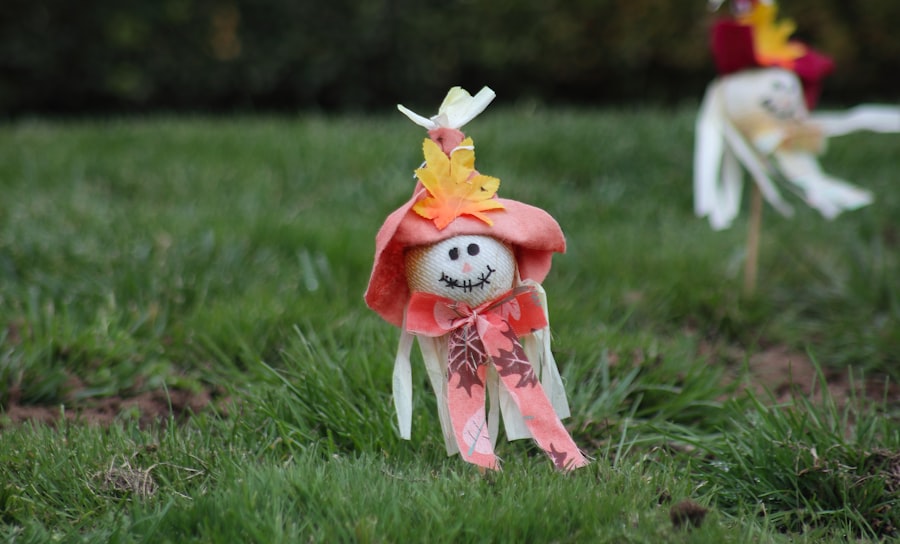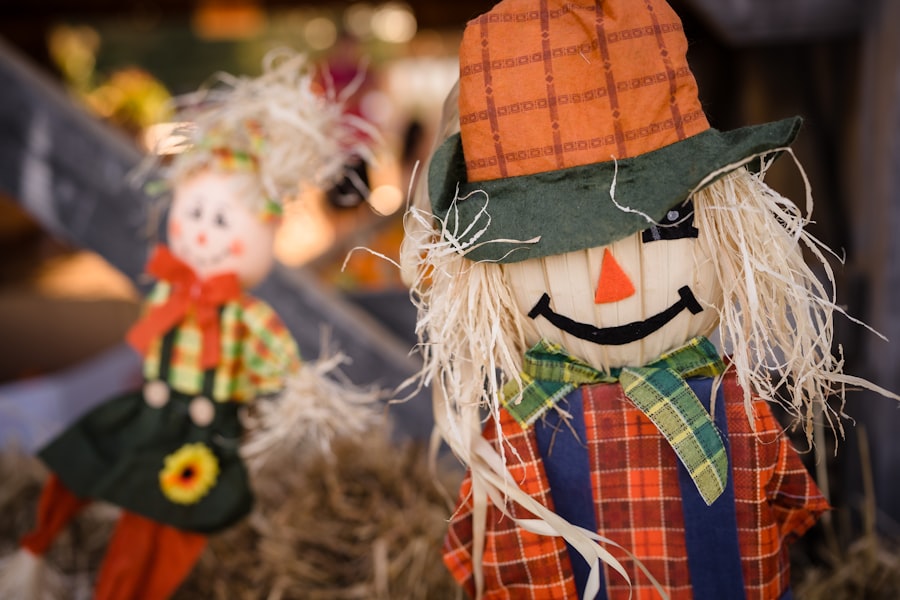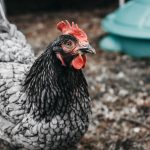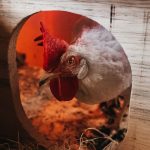Crows are highly intelligent and adaptable birds renowned for their problem-solving skills and complex social structures. As opportunistic feeders, they exploit various food sources, including crops and gardens. Understanding crow behavior is crucial for developing effective deterrent strategies to protect property.
These birds are highly social, often roosting and foraging in large groups. They exhibit territorial behavior, defending their feeding and roosting areas from other birds and predators. This territoriality can make crows persistent and challenging to deter once they establish a presence in an area.
Furthermore, crows possess excellent memory and can quickly learn and adapt to new situations, making it difficult to rely on the same deterrent methods repeatedly. To effectively deter crows, it is essential to comprehend their behavior and implement strategies that leverage their social structure and intelligence. By understanding their habits and tendencies, it becomes possible to develop more successful long-term deterrent methods.
Table of Contents
- 1 Implementing Physical Barriers
- 2 Using Scare Tactics
- 3 Providing Alternative Food Sources
- 4 Installing Motion-Activated Devices
- 5 Building Roosting Deterrents
- 6 Seeking Professional Help
- 7 FAQs
- 7.1 What are some natural ways to keep crows away from chickens?
- 7.2 Are there any commercial products available to keep crows away from chickens?
- 7.3 Why is it important to keep crows away from chickens?
- 7.4 What are some signs that crows are targeting chickens?
- 7.5 Are there any legal methods to control crows near a chicken coop?
Key Takeaways
- Crows are highly intelligent and social birds, with a keen ability to problem solve and communicate with each other.
- Physical barriers such as netting, spikes, and wire mesh can effectively deter crows from roosting in unwanted areas.
- Scare tactics like decoys, noise makers, and predator models can be used to disrupt crow behavior and discourage roosting.
- Providing alternative food sources such as bird feeders and garbage cans with secure lids can redirect crows away from problem areas.
- Motion-activated devices like sprinklers, lights, and sound emitters can startle crows and discourage them from roosting in specific locations.
- Building roosting deterrents like angled surfaces, sloped ledges, and bird spikes can make roosting areas less appealing to crows.
- Seeking professional help from wildlife experts or pest control services can provide effective and humane solutions for managing crow behavior.
Implementing Physical Barriers
Types of Physical Barriers
One effective way to deter crows from causing damage to crops and gardens is by implementing physical barriers. This can include using netting or wire mesh to cover plants and crops, as well as installing fences or other structures to prevent access to certain areas. Physical barriers can be an effective deterrent because they create a physical obstacle that crows are less likely to try to overcome.
Using Netting and Wire Mesh
Netting and wire mesh can be used to cover individual plants or entire garden beds, preventing crows from accessing the food source. Fences can also be used to create a barrier around a garden or crop field, making it more difficult for crows to gain access. Additionally, scarecrows can be placed in strategic locations to further deter crows from approaching the area.
Proper Installation and Maintenance
When implementing physical barriers, it is important to ensure that they are properly installed and maintained to be effective. This may involve regularly checking for any damage or gaps in the barriers and making necessary repairs or adjustments. By implementing physical barriers, it is possible to create a more secure environment for crops and gardens, reducing the likelihood of damage caused by crows.
Using Scare Tactics

Scare tactics can be an effective way to deter crows from causing damage to crops and gardens. This can include using visual deterrents such as scarecrows, reflective tape, or balloons, as well as auditory deterrents such as noise makers or predator calls. Scare tactics work by creating a sense of danger or threat that encourages crows to avoid the area.
Scarecrows are a traditional method of deterring birds from crops and gardens. They work by creating the appearance of a human presence, which can be enough to deter crows from approaching the area. Reflective tape and balloons can also be effective visual deterrents, as they create movement and light that can startle and deter birds.
Auditory deterrents such as noise makers or predator calls can also be effective in deterring crows. These devices create sounds that mimic natural predators or other threats, which can encourage crows to avoid the area. By using scare tactics, it is possible to create a hostile environment for crows that encourages them to seek food sources elsewhere.
Providing Alternative Food Sources
One way to deter crows from causing damage to crops and gardens is by providing alternative food sources that are more attractive to them. This can include setting up bird feeders with seeds or grains that are appealing to crows, as well as providing other food sources such as fruit trees or compost piles. By providing alternative food sources, it is possible to redirect the attention of crows away from crops and gardens.
Bird feeders can be strategically placed in areas away from crops and gardens to attract crows and provide them with a more desirable food source. Fruit trees can also be planted in areas where crows are known to forage, providing them with a natural food source that reduces the likelihood of them targeting crops. Additionally, compost piles can attract crows by providing them with access to food scraps and other organic material.
By providing alternative food sources, it is possible to create a more appealing environment for crows that reduces the likelihood of them causing damage to crops and gardens. This approach takes advantage of the natural feeding habits of crows and provides them with an alternative food source that reduces their reliance on crops and gardens.
Installing Motion-Activated Devices
Motion-activated devices can be an effective way to deter crows from causing damage to crops and gardens. These devices work by detecting movement and then activating a deterrent such as a burst of water, a loud noise, or flashing lights. By using motion-activated devices, it is possible to create a dynamic deterrent that discourages crows from approaching the area.
Motion-activated sprinklers are a popular choice for deterring birds from crops and gardens. These devices detect movement and then release a burst of water that startles and deters birds from the area. Additionally, motion-activated noise makers or flashing lights can also be effective in deterring crows by creating a sense of danger or threat.
When installing motion-activated devices, it is important to consider the placement and coverage area to ensure that they are effective in deterring crows. By using motion-activated devices, it is possible to create a dynamic deterrent that discourages crows from causing damage to crops and gardens.
Building Roosting Deterrents

Physical Barriers
One effective method is to install bird spikes on ledges or flat surfaces where crows tend to roost. These spikes make it uncomfortable for the birds to land and roost, encouraging them to find alternative locations. Another method is to use bird netting or wire mesh to cover trees or other structures where they tend to gather, creating a physical barrier that prevents the birds from accessing their preferred roosting spots.
Visual Deterrents
Using visual deterrents such as predator decoys or reflective tape can also discourage crows from roosting in specific areas. These visual cues create a sense of unease among the birds, making them less likely to roost in areas where they are present.
Creating an Inhospitable Environment
By building roosting deterrents, it is possible to discourage crows from gathering in unwanted areas, reducing noise, mess, and damage caused by their presence. These deterrents create an inhospitable environment for roosting crows, encouraging them to find alternative locations away from urban areas.
Seeking Professional Help
If all else fails, seeking professional help may be necessary when dealing with persistent crow problems. Professional pest control services or wildlife management experts have the knowledge and experience to effectively address crow infestations in a safe and humane manner. They can provide expert advice on the best methods for deterring crows based on the specific situation and offer solutions tailored to the unique needs of the property.
Professional help may involve using advanced deterrent methods such as bird relocation or trapping under the guidance of experts who understand local regulations and ethical considerations. Additionally, wildlife management professionals can provide ongoing monitoring and maintenance to ensure that crow problems are effectively managed over time. By seeking professional help, property owners can access the expertise and resources needed to effectively address crow problems in a way that is safe, ethical, and sustainable.
Professional pest control services or wildlife management experts have the knowledge and experience to effectively address crow infestations in a safe and humane manner. In conclusion, understanding the behavior of crows is essential in finding effective ways to deter them from causing damage to property. Implementing physical barriers, using scare tactics, providing alternative food sources, installing motion-activated devices, building roosting deterrents, and seeking professional help are all effective strategies for managing crow problems in a way that is safe, ethical, and sustainable.
By taking a comprehensive approach that considers the behavior of crows and uses a combination of deterrent methods, it is possible to effectively manage crow problems and protect crops, gardens, and urban areas from damage caused by these intelligent and adaptable birds.
If you’re looking for ways to protect your chickens from predators, you may also be interested in learning about how geese can help keep your chickens safe. According to a recent article on PoultryWizard, geese can be a valuable addition to your flock as they are natural protectors and can help keep predators, including crows, at bay. To learn more about how geese can benefit your chickens, check out this article.
FAQs
What are some natural ways to keep crows away from chickens?
Some natural ways to keep crows away from chickens include using scarecrows, hanging shiny objects like CDs or aluminum foil strips, and planting tall trees or shrubs to provide cover for the chickens.
Are there any commercial products available to keep crows away from chickens?
Yes, there are commercial products such as predator decoys, sound deterrents, and motion-activated sprinklers that can help keep crows away from chickens.
Why is it important to keep crows away from chickens?
Crows are known to prey on small animals, including chickens, and can cause harm to the flock. Keeping crows away from chickens helps protect the birds and ensures their safety.
What are some signs that crows are targeting chickens?
Signs that crows are targeting chickens include missing or injured birds, scattered feathers, and evidence of crows scavenging around the chicken coop or run.
Are there any legal methods to control crows near a chicken coop?
In some areas, it may be legal to use non-lethal methods such as scare tactics or deterrents to keep crows away from chickens. However, it’s important to check local regulations and laws regarding wildlife management.
Meet Walter, the feathered-friend fanatic of Florida! Nestled in the sunshine state, Walter struts through life with his feathered companions, clucking his way to happiness. With a coop that’s fancier than a five-star hotel, he’s the Don Juan of the chicken world. When he’s not teaching his hens to do the cha-cha, you’ll find him in a heated debate with his prized rooster, Sir Clucks-a-Lot. Walter’s poultry passion is no yolk; he’s the sunny-side-up guy you never knew you needed in your flock of friends!







